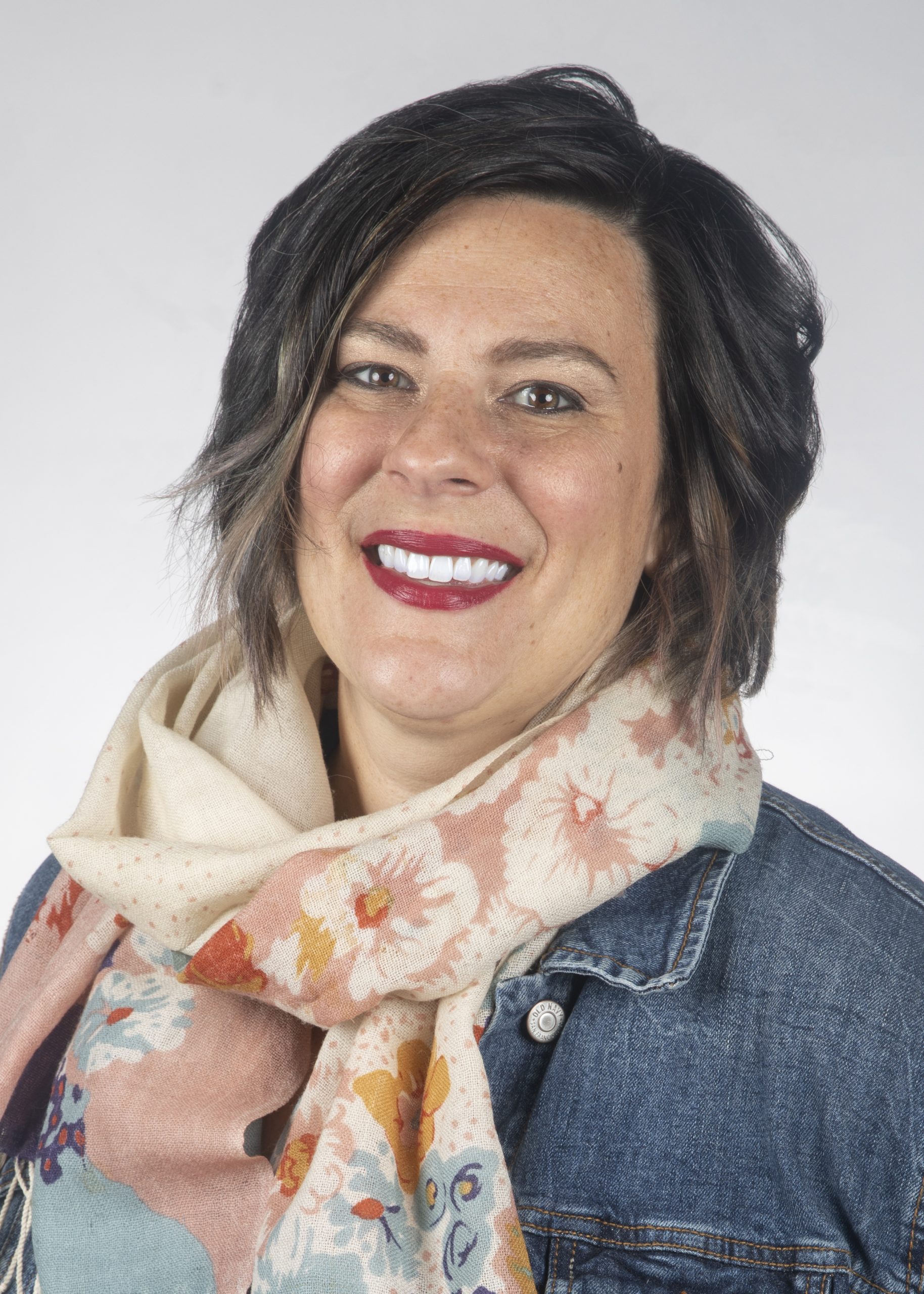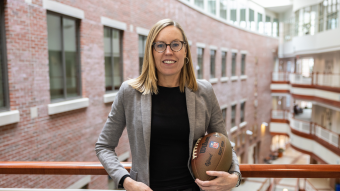July 29, 2021
The views and opinions expressed in this “for expert comment” release are based on research and/or opinions of the researcher(s) and/or faculty member(s) and do not reflect the University’s official stance.
In 2013, the United Nations named July 30 as “World Day Against Trafficking in Persons” to draw attention to the thousands of men, women and children who are trafficked each year. The hope is “to portray survivors as key actors in the fight against trafficking and the crucial role they play in establishing effective measures to prevent this crime.” A recent study by the UN found that the COVID-19 pandemic has made life increasingly difficult for victims and survivors of trafficking.

Kathleen Preble, an assistant professor at the MU School of Social Work within the School Health Profession, focuses much of her research on human trafficking. She studies not only human trafficking among adults and juveniles for both labor and sex, but also conducts studies about international and domestic exploitation, sex trading and gender-based violence. In a study conducted in collaboration with a colleague at Washington University’s Gender Studies department and St. Louis Community College Sociology Department, Preble tracked the demographics of human-trafficking cases in the state of Missouri. Here she discusses the findings of her research and dispels some of the common misconceptions about human trafficking.
What is human trafficking?
The Trafficking Victims Protection Act of 2000 defines human trafficking victims as anyone who is being recruited, harbored or procured to perform some type of service through the force of coercion, unless they are under the age of 18. If they are a minor, there doesn’t need to be evidence of forced coercion because they are too young to consent to these actions.
Who, in Missouri is most often trafficked?
In my research studying human trafficking in Missouri, we tracked a nearly 50-50 split between cis-males and cis-females in labor trafficking, which is also very interesting because sex-trafficking is impacts mostly cis-female identifying individuals. And while the majority of trafficked survivors served in Missouri have been heterosexual, some survivors were identified as members of the LGBTQ+ community, which is important because these survivors will need sexual and gender affirming care. Also, a majority, around 65%, of labor trafficked survivors identified as coming from rural areas. However, almost all aftercare services are based in urban centers making accessibility challenging. The majority of all survivors were between 18 to 25 years old, and had experienced intimate partner-based sex trafficking. This is important as it means we may be able to utilize some of the knowledge gained from the domestic and sexual violence field to help further our understanding and practice with survivors of sex trafficking. Something else to be noted is that the more adverse childhood experiences you have in your life, the higher your risk is for all kinds of issues later on in life, such as human trafficking.
How do these numbers work out when you break them up by race?
Though Missouri is around 80% white, about 46% of all survivors were white while 25% are Black, 10% Asian American, 6% Hispanic-Latino, and 3% Native American. These groups combined only make up about 19% of the population of the state, so when you look at these demographics, you see that the majority of people being trafficked are from marginalized populations, which stands in contrast to much of the public awareness depictions about human trafficking.
How should these demographics affect the way we should fight against human trafficking?
These findings really implicate the need to be mindful of blanket policies. If you have a state policy that is addressing labor and sex trafficking, and you’re doing it based on the idea that it’s only happening to one group of people, it won’t be particularly effective in fighting trafficking as a whole.
What type of human trafficking is most prevalent in the state of Missouri?
In Missouri, we have found that sex trafficking is the most prevalent form of human trafficking. However, that could be because the vast majority of outreach and activity is focused on sex trafficking and largely ignoring the labor trafficking component. With more resources and attention brought to labor trafficking, the number of tracked labor trafficking survivors could go up.
Should people be worried about their children or family members being trafficked at large public events?
Every year when the Super Bowl comes up, we always hear about an uptick in trafficking in the host city and state. However, there is no evidence supporting a correlation between an increase in trafficking and the Super Bowl. The majority of traffickers are known to their victims, so trafficking, like other crimes against women and children, is not a “stranger danger” problem. The likelihood of becoming trafficked while attending a large event, sports or otherwise, would be fairly rare, as most people attend these events with friends and family.
So, I think when peoples ask: How can I keep my loved ones safe from traffickers? The best answer is to talk with your family about keeping their bodies safe, what to do if someone makes them feel unsafe, and that you are a safe person to turn to if they need help.
How can the general public help survivors and efforts against human trafficking?
I would encourage folks in Missouri to reach out to the Missouri Coalition Against Trafficking & Exploitation, or CATE, to determine the best way to help. There’s always going to be pantry-related and feminine hygiene-related needs. Right now, there is a critical need for housing related support, so donations would be welcome to help facilitate crisis housing stabilization. People can do all kinds of things. They could have a movie night with their family or friends featuring a documentary about trafficking and have a conversation about it afterwards. There are also a number of different regional coalitions around the state that would be happy to offer information about trafficking.
From a broader perspective, there’s so much resilience and strength that these survivors have had to draw on that we don’t talk about at all, and I think that is a huge disservice. Generally, when we talk about human trafficking survivors, we talk about them as broken and damaged that need a blank slate to be built up again. That totally negates the fact that they had to draw on an incredibly intense amount of agency, strength, and resilience to have survived the experience of exploitation.
Preble says that if anyone believes that they have identified a human trafficking survivor, they should reach out to the national hotline at 1-888-373-7888.



